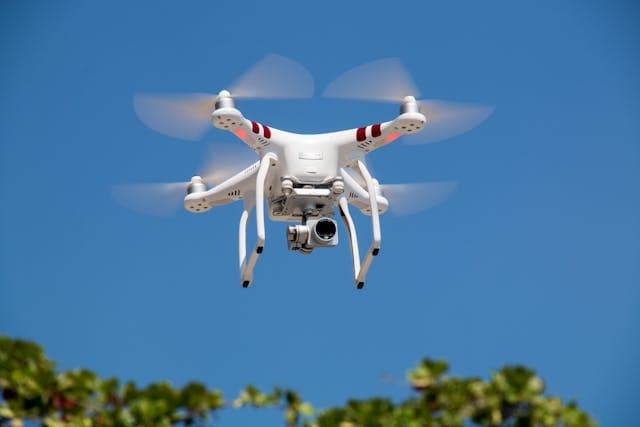The term "Metaverse" has moved from the realm of science fiction to a buzzword permeating boardrooms and tech conferences. But what exactly is the Metaverse, and why should businesses pay attention? More than just a virtual reality game, the Metaverse is envisioned as the next iteration of the internet: a persistent, interconnected network of 3D virtual worlds where users can interact with each other, digital objects, and AI avatars in real-time, blurring the lines between the physical and digital.
While still largely conceptual and in its early stages of development, the Metaverse presents both immense opportunities and significant challenges for businesses across all sectors.
Understanding the Metaverse Vision:
Imagine a digital space where you can:
- Attend virtual concerts, meetings, or educational classes with people from anywhere in the world.
- Shop for digital fashion that you can wear on your avatar and potentially even order physical versions.
- Collaborate on projects in shared 3D environments.
- Own digital land, assets (NFTs), and build your own experiences.
This vision requires advancements in VR/AR hardware, network infrastructure (5G/6G), AI, blockchain, and 3D rendering technologies.
Opportunities for Businesses in the Metaverse:
- New Revenue Streams & E-commerce: Digital Goods & Services: Selling virtual fashion, furniture, art (NFTs), virtual real estate, and digital experiences. Companies like Nike and Gucci are already experimenting with digital apparel.Experiential Marketing: Creating immersive brand experiences, virtual showrooms, product launches, and interactive advertising campaigns.Virtual Events & Entertainment: Hosting concerts, conferences, and exhibitions in the Metaverse, creating new ticket sales and sponsorship opportunities.
- Enhanced Customer Engagement & Brand Building: Immersive Interactions: Connect with customers in highly engaging 3D environments, fostering deeper relationships and brand loyalty.Community Building: Create dedicated virtual spaces where fans and customers can interact with each other and the brand.Personalized Experiences: Leverage data from Metaverse interactions to offer highly tailored content and product recommendations.
- Workforce & Collaboration: Future of Work: Virtual offices and meeting spaces can facilitate remote collaboration, training, and employee engagement, potentially reducing travel costs.Skills Development: Immersive training simulations and onboarding experiences can be more engaging and effective.
- Product Development & Testing: Digital Twins: Creating virtual replicas of physical products or environments to simulate performance, test designs, and optimize operations before physical production. This could revolutionize manufacturing and urban planning.
- Data & Insights: The Metaverse will generate vast amounts of data on user behavior, preferences, and interactions, offering unprecedented insights for product development, marketing, and personalization (with careful attention to privacy).
Challenges for Businesses in the Metaverse:
- Technological Maturity & Accessibility: Hardware Barriers: Widespread adoption requires affordable, comfortable, and high-fidelity VR/AR headsets and powerful computing devices.Infrastructure: Requires robust, low-latency network infrastructure (5G/6G) to support real-time 3D environments.Interoperability: A truly open Metaverse requires seamless interoperability between different platforms, assets, and identities, which is currently lacking.
- User Adoption & Experience: Learning Curve: Users need to adapt to new interaction paradigms (VR controllers, gestures, voice)."Why?" Factor: Businesses need to provide compelling reasons for users to spend time and money in the Metaverse beyond novelty.
- Security, Privacy & Governance: Data Privacy: Managing vast amounts of personal data in immersive environments raises significant privacy concerns.Cybersecurity: New attack vectors, identity theft, and virtual property theft will emerge.Regulation & Ethics: Who governs these virtual worlds? How are virtual crimes handled? How do we prevent harassment, misinformation, and other societal issues from proliferating in the Metaverse?
- Monetization Models: While digital goods and advertising are clear avenues, sustainable and ethical monetization models for the Metaverse are still being explored and refined.
- Talent & Expertise: A shortage of professionals skilled in 3D design, virtual reality development, blockchain, and AI for Metaverse applications.
Conclusion: A Gradual Evolution
The Metaverse won't appear overnight. It will be a gradual evolution, much like the internet, with different platforms and experiences slowly converging. For businesses, the key is not to jump headfirst into every trend but to:
- Educate themselves: Understand the underlying technologies and potential applications.
- Experiment cautiously: Start with small, targeted experiments, perhaps with virtual events or digital collectibles.
- Focus on value: Ensure any Metaverse initiative provides genuine value to customers or internal operations.
- Prioritize ethics & safety: Build responsible practices into their Metaverse strategy from the outset.
The Metaverse represents a fascinating and potentially transformative digital frontier. While the path ahead is fraught with challenges, the opportunities for innovation, engagement, and growth for businesses willing to explore this new dimension are immense.






